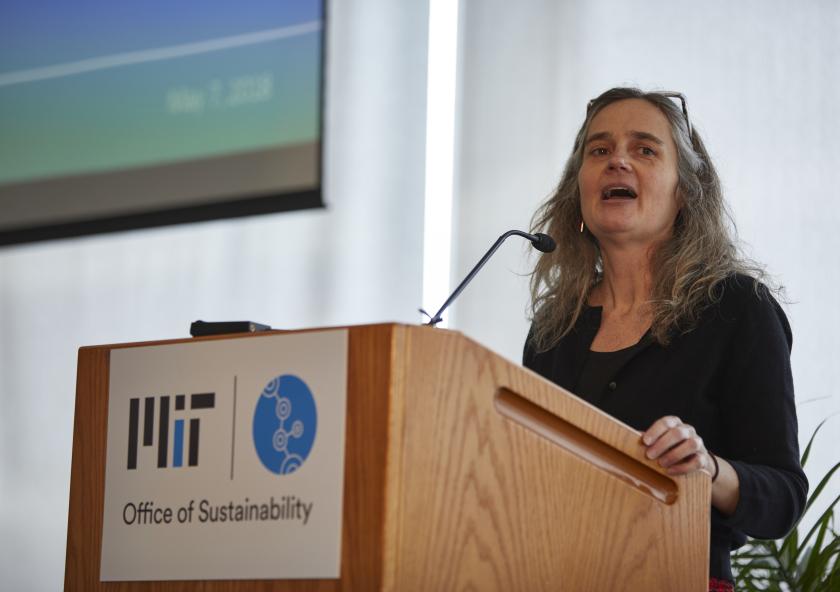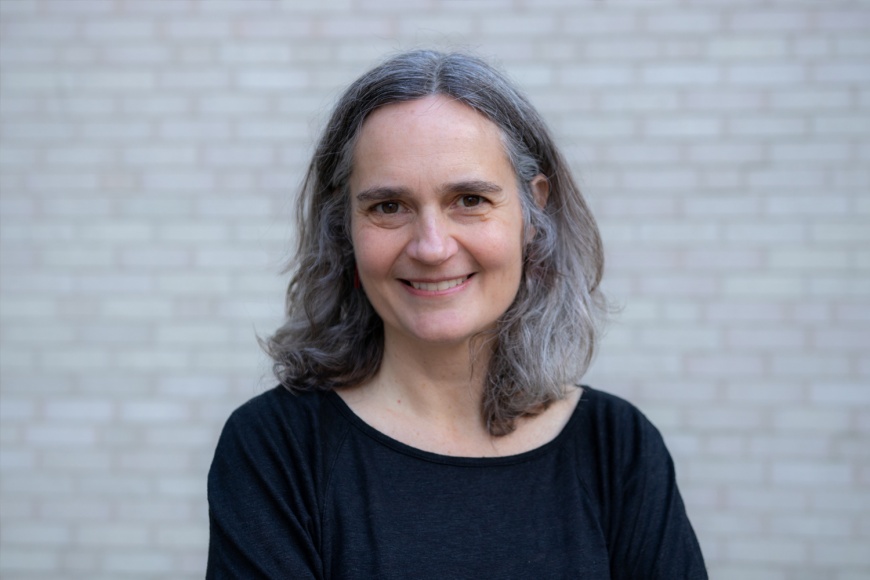
Behind the Climate Action Plan: Heather Paxson, Professor and Head of Anthropology

What is a typical day like for you at MIT?
 My days are full, but varied. In these pandemic times, I’m working from home more often than taking the T across town to my office in E53, and yes, that means a lot of Zoom meetings. I review or edit manuscripts daily, especially for Cultural Anthropology, the journal I co-edit. During the semester, there’s always the next class to prep. As Head of my academic unit, I spend much of my time reading and writing emails! I tend to take my morning coffee to my desk and work straight through until it’s time to cook dinner for my family — I enjoy cooking, and the daily ritual of sitting down to share a meal keeps me going.
My days are full, but varied. In these pandemic times, I’m working from home more often than taking the T across town to my office in E53, and yes, that means a lot of Zoom meetings. I review or edit manuscripts daily, especially for Cultural Anthropology, the journal I co-edit. During the semester, there’s always the next class to prep. As Head of my academic unit, I spend much of my time reading and writing emails! I tend to take my morning coffee to my desk and work straight through until it’s time to cook dinner for my family — I enjoy cooking, and the daily ritual of sitting down to share a meal keeps me going.
What are some ways your work and the humanities in general support MIT’s climate action plan to reduce on campus emissions and utilize the campus as a test bed for change?
Science and engineering provide essential tools for assessing and helping to mitigate earth systems changes underway, but the changes our planet’s climate is undergoing are largely the result of political-economic decisions and neglect that also perpetuate social inequities and injustices alongside exploitation of earth’s resources. Thus, as MIT’s Fast Forward Climate Action Plan recognizes, “the world will not solve the climate problem without solving the intertwined problems of equity and economic transition.”
Anthropology is the study of human cultural diversity, which in practice means we study people’s everyday lives in cultural, political, and economic context. I’m not alone in becoming an anthropologist because of my fascination with the wide range of ways of living, doing, and being in the world. Learning about the variety of ways humans make a living and find meaning in their lives can provide lessons for how each of us might act and behave otherwise.
On April 22-23, 2022, Anthropology (with STS, History, the SHASS Dean’s Office, and MITOS) is hosting Living Climate Futures, a 2-day symposium that will bring together community activists from across the country who are on the frontline of climate change activism and resiliency-building. These activists will also participate in several of our Spring semester classes leading up to the symposium. It’s an amazing opportunity for students to get to know a variety of climate activists and learn about their work and motivations.
What’s one thing you wish people knew about the Anthropology Department and how it supports MIT’s overall mission?
First, that MIT has an Anthropology department! As I like to say, we’re small but mighty, with a faculty of 10 top-rate scholars who are also all terrific teachers. Students in our classes often comment that they wished they’d discovered anthropology earlier in their time at MIT. Students choose a HASS Concentration in Anthropology for a variety of reasons. Some are drawn to our classes to help prepare for professional work in multicultural and international settings, or because they love to travel. Other students recognize in anthropological readings their own stories of immigration, transcultural generation gaps, or concern about the social reproduction of inequality. Some report finding enduring “life lessons” in learning about other possible ways of being human. Our undergraduate subjects include: “Environmental Struggles,” “Planetary Change and Human Health,” “Gender, Race and Environmental Justice,” “Food, Culture and Politics,” and “The Meaning of Life.” We also actively participate in the PhD program in History; Anthropology; Science, Technology and Society (HASTS).

